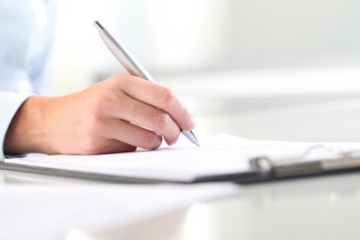Study abroad checklist
If you are considering studying abroad, this study abroad checklist will help you understand what you need to do before you make the move.
Last updated 21 February 2022 at 16:05
There are many things to consider when studying abroad and they can put into two distinct groups - emotional and practical.
This study abroad checklist deals with the practical side of things – unfortunately we don’t know you well enough to deal with your emotions. Please take a look below at the tips and advice we've collated for those starting your new academic chapter abroad.
First thing’s first. Packing. Do you think some of your packed boxes may have exceeded the maximum weight allowance? Weigh your box on your bathroom scales and stand on the scales holding the box so that all you need to do is subtract your own weight from the total.
Always think about insurance if you’re shipping treasured possessions across the globe. Peace of mind and all that.
Start packing immediately – like yesterday – because it’s better to spread out the packing over a number of days rather than hastily packing everything on the last possible day.
Keep all documents and admin together in the same box such as academic certificates, job references, accommodation documents, NHS medical cards, etc. The same goes for electronic devices – keep them all together with their power cords, adaptors and memory sticks. That way, you’ll find exactly what you’re looking for when you reach the other end.
Try to leave bulky items at home, regardless of how meaningful they may be. Framed film posters, large musical instruments, big books, if these kinds of items can be left at home, leave them at home, otherwise the transportation fees might go through the roof.
Do as much research online as you can for student accommodation before you leave. Try and have something in place for your arrival. And if you can, try to recruit the help of local real estate companies and property experts to provide you with the details and advice you need.
Have you thought about money? When you get to your destination country, you’ll need to set up a bank account so you can use ATM machines and the like. Have a look around and find the best deal for you – student offers/discounts, etc.
Once you’ve arrived in your destination country, take time out to explore. Travel the various roads and routes that surround your home and your campus and acquaint yourself with them. Also make a note of the local transport timetables before the semester starts because the last thing you want to be doing is standing on the corner of an unfamiliar street clutching your text books and wondering how you get to home from here.
For more information read our essential checklist for students packing for university, which offers advice for the most stress-free approach to international student relocation.



